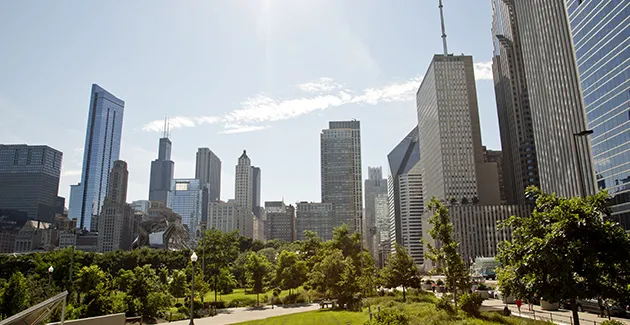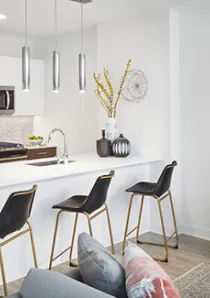Chicago apartments have been riding high on a wave of new construction in recent years. The city has seen a tremendous spike in new building construction over the last decade. Construction increased 400% from the 2010 rate according to Chicago Department of Buildings Commissioner Judy Fryland. During the last four years, an average number of 60 high-rise cranes were in place across the city.
Even with construction of new apartments and commercial real estate taking off, the City of Chicago asked contractors and builders to follow an antiquated and idiosyncratic building code. But that’s all poised to change.
On April 10, 2019, the City Council voted to approve the first major overhaul of the Chicago building code in nearly 70 years. The new code will bring a variety of changes to the way new homes and apartments are built in Chicago.
What’s New in the Chicago Building Code?
The key changes to the city’s new building code are mostly common-sense measures that bring Chicago up to the standard of many global cities. There are new safety standards in place with the new code. Sprinkler systems will be required in apartment buildings that contain more than four units. The number of required exits in buildings will also increase under the new code.
These changes will have the greatest impact on new buildings. But what about apartment landlords who want to make renovations to existing buildings? The Department of Buildings has stated that fees are not expected to increase with the new building code, and the permitting process remains the same.
Apartment owners who want to convert basements or attics into separate living spaces should be pleased with updates to the code. The minimum ceiling height will be lower than it is currently, and the new code makes the process for converting existing basements or attics into dwellings less onerous for builders in a couple of substantive ways.
The code will introduce more efficiencies for builders, such as making it easier to work with factory-made housing and pre-fabricated building materials. There are also new standardized classifications for building types that will bring Chicago up to the standard of many international cities.
When Will the New Building Code Take Effect?
The city has set a June 1, 2020 launch date for the new building code. Builders will have a choice to comply with the existing code or opt to follow the new building code until August of 2020. After that, all buildings must follow the new code.
How Will the New Building Code Roll Out?
The new Chicago building code will be rolled out in phases. Phase 1 of the rollout focuses on electrical and elevators. Phase 2 focuses on buildings, and Phases 3, 4, and beyond will address mechanical, plumbing, fire safety and accessibility in new buildings. Permit fees will not increase under the new building code.
Overall, the modernization of Chicago’s building code will introduce more preservation options for existing buildings. It will also encourage the use of sustainable and energy-efficient materials. With all these updates and incentives in place under the new code, the Department of Buildings hopes that more preservation occurs, and the city’s character is maintained for future generations.




